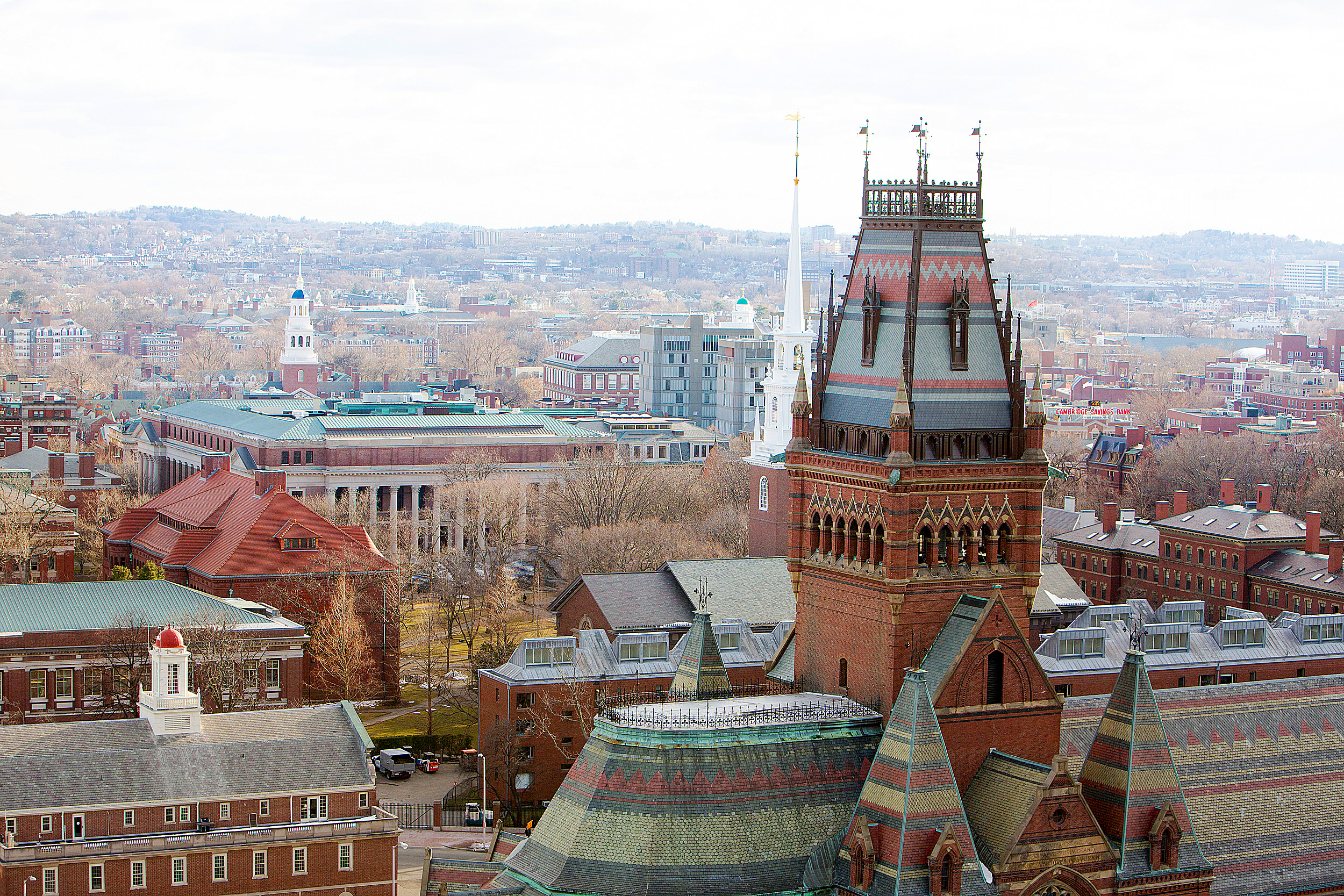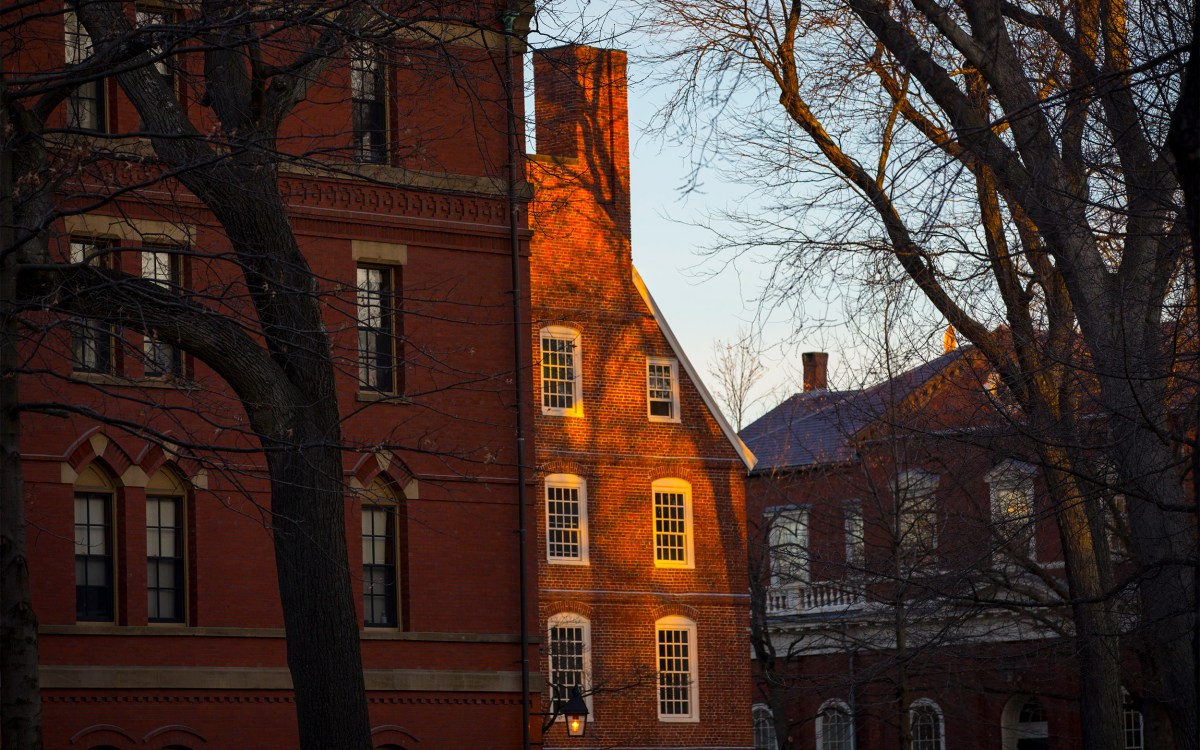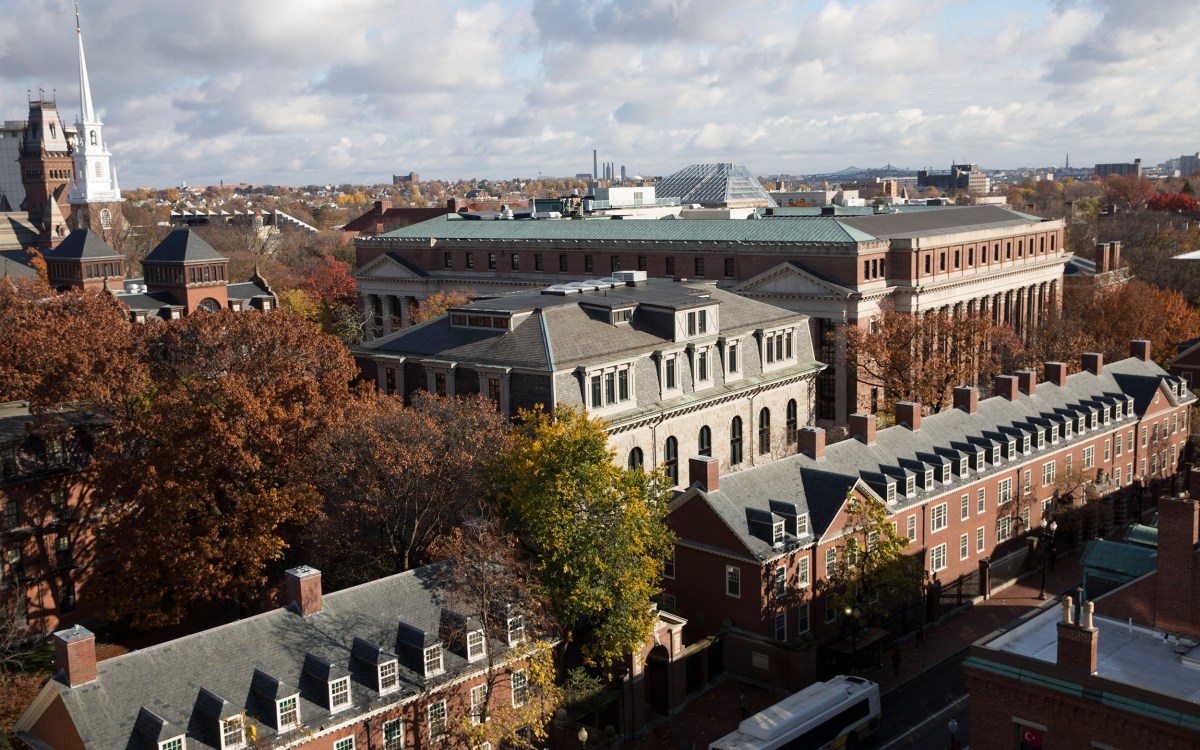
Harvard University’s Cambridge campus.
Rose Lincoln/Harvard file photo
Admissions lawsuit enters second week
More Harvard officials to testify in trial challenging College’s admissions process
Harvard officials are continuing to take the stand in the second week of a trial in U.S. Federal District Court. The case challenges the University’s admissions process as discriminatory to Asian American applicants and questions the right to use race as one factor among many in considering applicants for admission. Many experts say a ruling against Harvard could transform the nation’s higher-education landscape.
Expected to offer testimony in the coming days about the admissions process are Danoff Dean of Harvard College Rakesh Khurana, former Harvard President Drew Faust, and former dean of Harvard’s Faculty of Arts and Sciences Michael D. Smith. Several current and former students are also expected to testify in support of Harvard. The suit was filed in 2014 by Students for Fair Admissions (SFFA), a group founded by anti-race-conscious-admissions activist Edward Blum. It alleges that Harvard discriminates against Asian Americans when selecting its incoming class.
Harvard’s longtime Dean of Admissions William Fitzsimmons ’67 was the first witness in the proceedings that opened a week ago in Boston. During four days of testimony, Fitzsimmons repeatedly said the admissions process treats every applicant fairly and equally.
On Thursday, Harvard lead attorney William F. Lee ’72 asked Fitzsimmons if he had ever seen “bias or discrimination against Asian Americans” during his four decades in the admissions office. “Never,” answered Fitzsimmons, citing “checks and balances” that ensure every applicant is given full consideration. “We certainly do everything in our power, you know, to treat every applicant fairly.”
Fitzsimmons said that Harvard considers race as only one factor in its holistic admissions review of the roughly 40,000 students who submit applications each year for approximately 2,000 spots, and as a way to help ensure that the College creates as diverse a student body as possible.
“Is an applicant’s race ever considered a negative factor?” asked Lee. “Never,” responded Fitzsimmons.
As the man who has long overseen how students are admitted to Harvard, Fitzsimmons said he has reviewed thousands of applicants and taken part in countless meetings to review applications with a 40-person committee. That in-depth process, he said, requires months and takes into account a wide range of information, including students’ academic achievements, as well as extracurricular and athletic activities. Personal essays, recommendations from teachers and guidance counselors, and applicant interviews are also considered.
John Hughes, the lead lawyer for SFFA, pressed Fitzsimmons about why Harvard considers race in its admission process at all. Fitzsimmons responded that “one of the best things about going to any college, including Harvard … is the opportunity to learn from fellow classmates.” The more diverse those classmates are, the more people learn, he said.
Fitzsimmons also cited Supreme Court rulings that have upheld the right of colleges and universities to use race in their admissions and emphasized the educational benefits generated by a diverse student body. He pointed to the findings of a report by the U.S. Department of Education’s Office of Civil Rights (OCR) in 1990 that cleared Harvard of allegations of discrimination against Asian Americans.
A student body that is diverse across a range of factors, including race and ethnicity, has far-reaching implications “in terms of what our students will learn over the four years and how they will live their lives for the public good,” said Fitzsimmons. Such diversity, he said, helps undergraduates become “better citizens and citizen-leaders, not just during Harvard, [but] we hope, throughout the rest of their lives.” Part of the process, he added, involves reaching out to the most diverse group of students possible, including those from low-income backgrounds.
Last week, lawyers for SFFA questioned Harvard officials about a slide deck compiled in 2013 by the University’s Office of Institutional Research (OIR) that suggested the College’s admission process produced adverse effects for Asian American applicants.
On Friday, former OIR head Erin Driver-Linn, who helped compile the information, said she considered it preliminary and incomplete because it did not have the benefit of the full admissions data or a complete understanding of the admissions process. “We understood that it was a highly simplified version of the way that someone who is a content expert, such as Dean Fitzsimmons, thinks about the admissions process,” said Driver-Linn, now dean for education at the Harvard T.H. Chan School of Public Health.
Lee, who cross-examined Fitzsimmons last week about a 2013 meeting that addressed the slide deck, asked him, “Did anyone at OIR report to you that they had uncovered discrimination or bias against Asian Americans?” “Not at all,” Fitzsimmons responded. “Did anybody tell you that this presentation showed discrimination or bias against Asian Americans?” Lee continued. “Not at all,” said Fitzsimmons.
Hughes also delved into the personal rating, an assessment in Harvard’s application process that takes into account an applicant’s essays, responses to short-answer questions, recommendations from teachers and guidance counselors, alumni interview reports, staff interviews, and additional letters or information provided by the applicant. Fitzsimmons acknowledged that Asian Americans on average scored slightly lower on the assessment, but he said the personal ratings include a broad range of factors.
In his opening statement last Monday, Lee said that Harvard “does not and has not discriminated against Asian Americans.”
In Harvard’s holistic review, a person’s grades are only one consideration, Lee said, because Harvard “does not believe that an individual is defined by their grade-point average or their SAT.” Harvard’s admissions officers factor in race as one way to help them determine “what motivates an applicant, what makes an applicant unique, and what the applicants can bring and take away from the Harvard community.”
Lee also pointed to Supreme Court rulings that have affirmed considering race in college admissions, noting that Harvard’s admissions process has been held up by the court as an “illuminating example.”
For Lee, the case also strikes a personal chord. He ended his remarks last Monday by recalling that when he first walked into U.S. District Court 42 years ago, “with the exception of the courtroom deputy, every single person in the room was male. With the exception of me, every person in the room was a white male.” Policies such as Harvard’s that consider race as one factor among many have helped foster a more robust, more diverse, and more inclusive society, said Lee.
“This, of all times,” he added, “is not the time to go backwards.”






